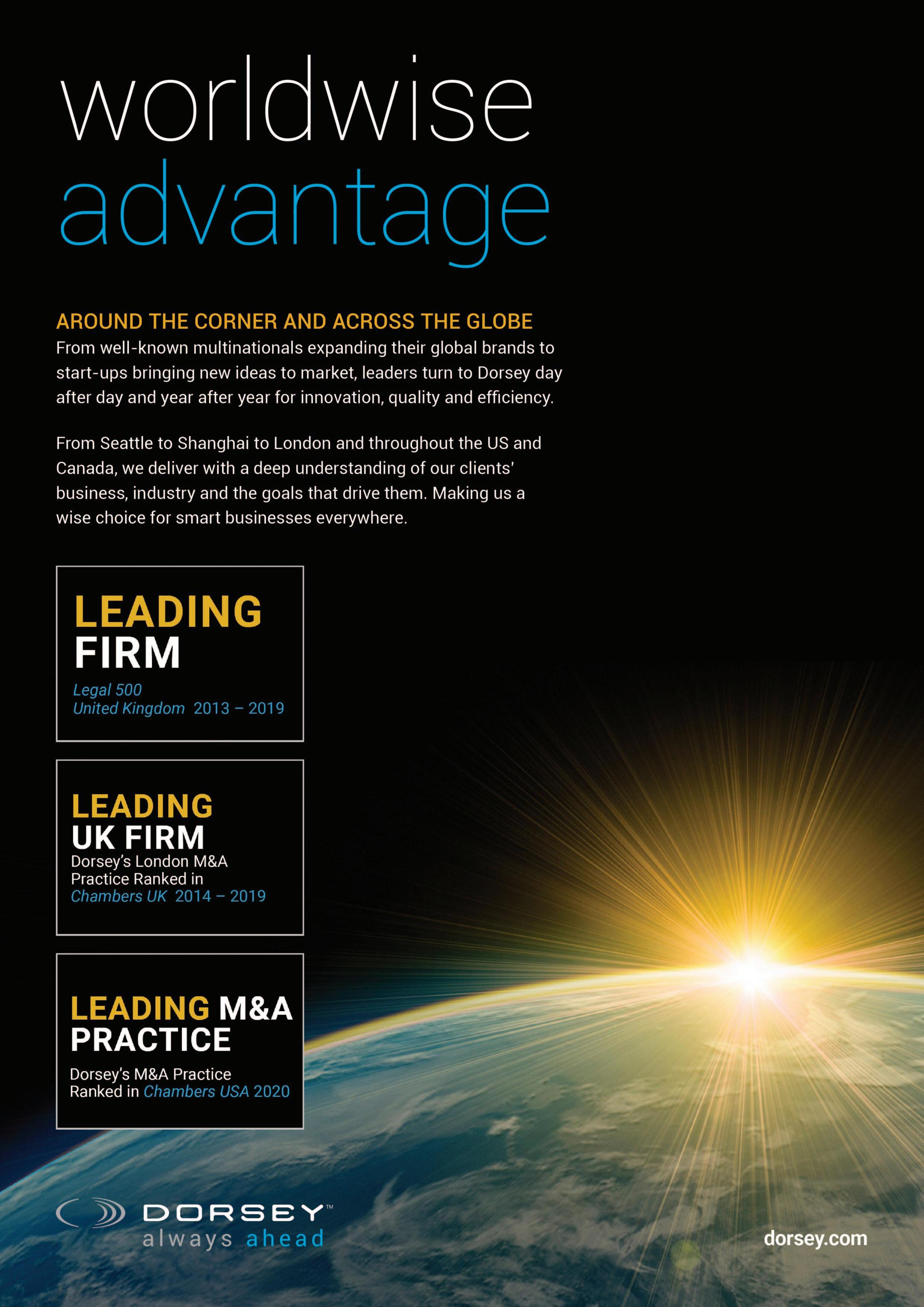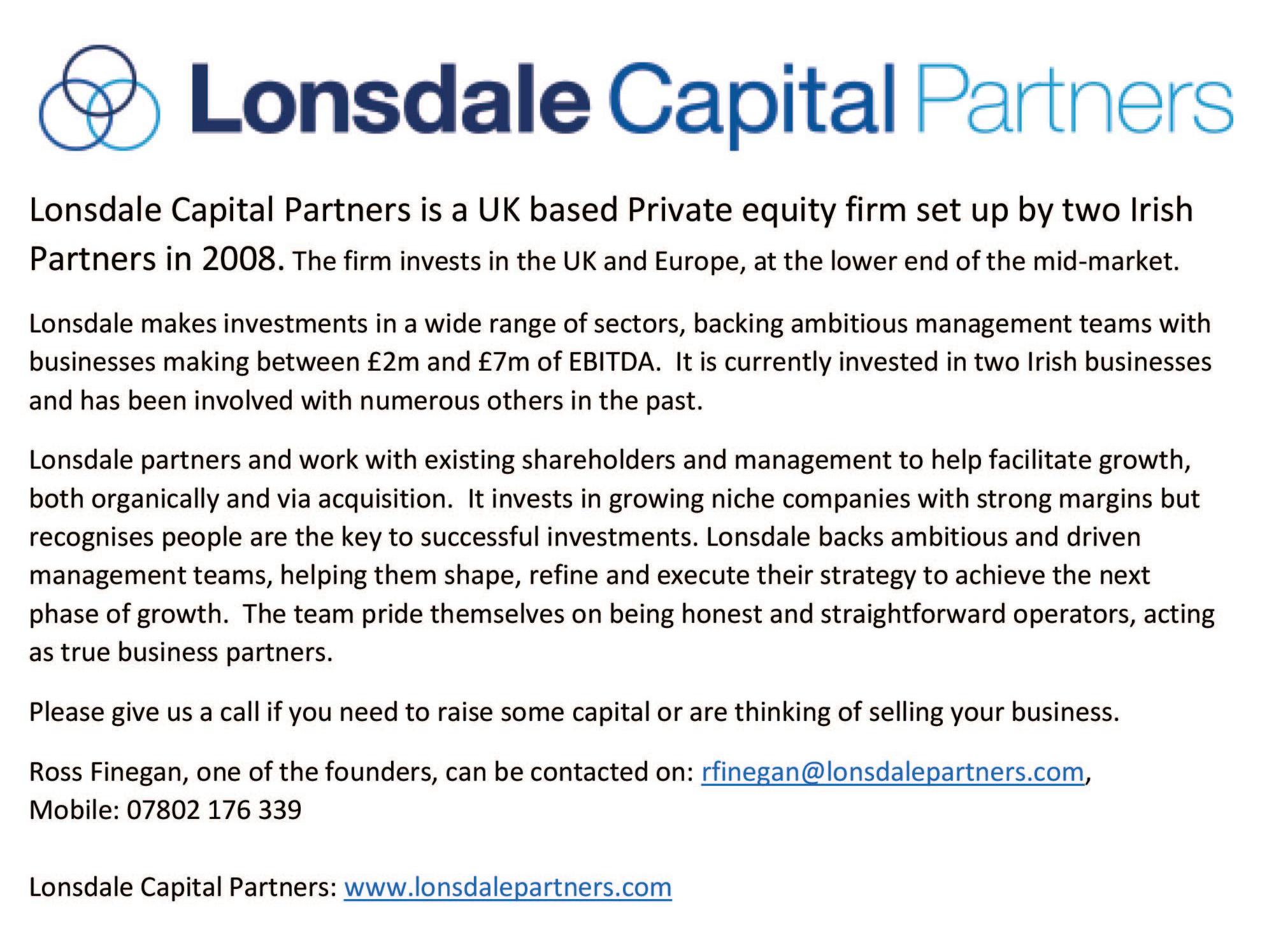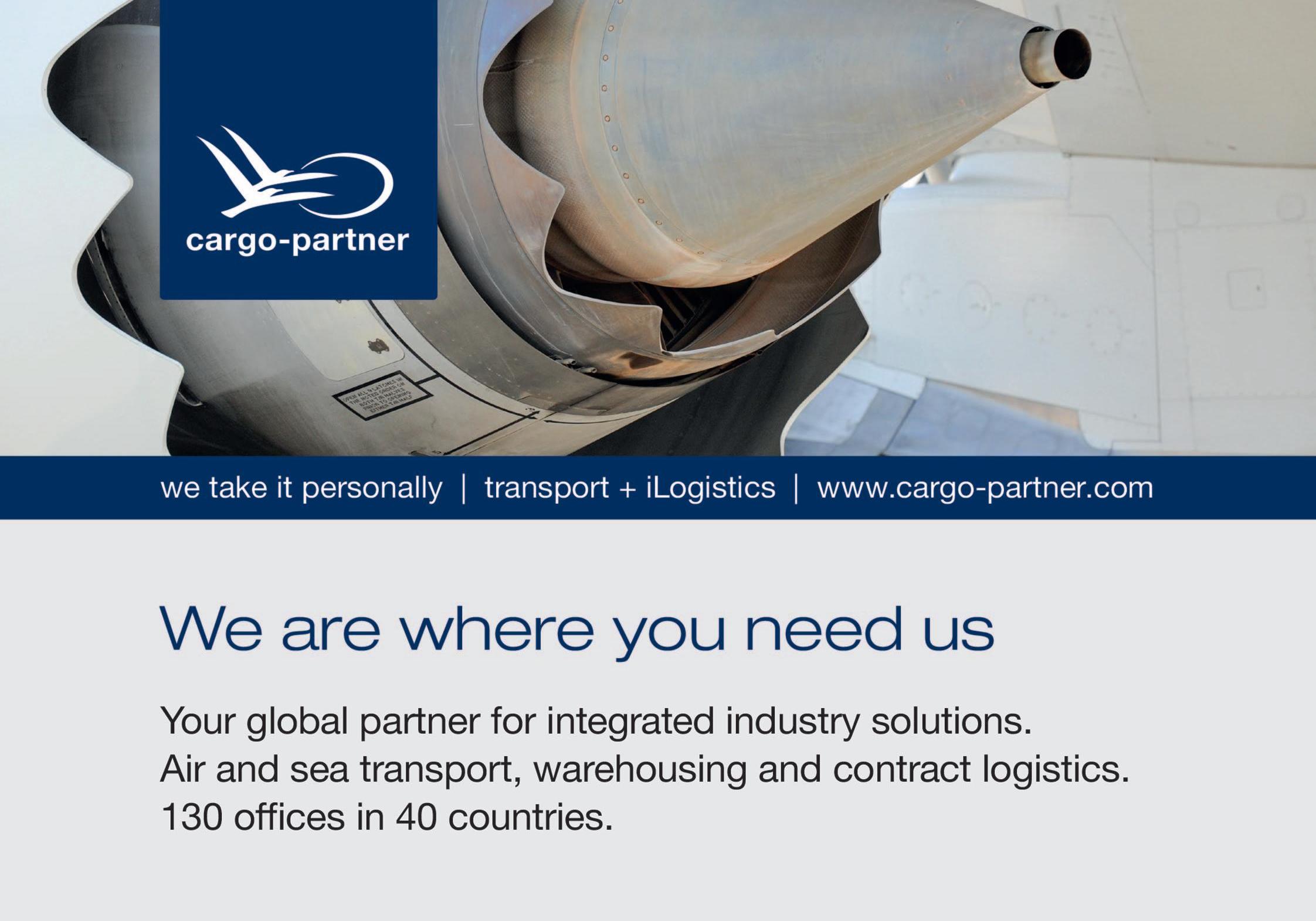
8 minute read
Welcome and contents
A welcome message from
Fionuala Pender, IIBN Global Chair
Advertisement
Welcome to the first issue of Global Connections for 2021, the IIBN eMagazine for our 9,000 members globally.
We are delighted to bring you a terrific line up of Guest Contributors this month, including Fiona McEntee of McEntee Law in Chicago, Janice Flynn of Janice Flynn & Associates in London, Ross Finnegan of Lonsdale Capital Partners in London, Chris Burge of Spark Crowdfunding in Dublin and Deirdre McKettrick of UFurnish in London.
In addition to this, we feature the Profiles of a broad group of IIBN Members from across all of our Chapters and across all business sectors. Future editions of this Magazine will further extend these profiles and we will be in contact with you in the coming weeks and months for inclusion in these.
For those of you who have been attending IIBN events going back many years we have included a series of photos from previous events.
As a not-for-profit organisation, we are very grateful to our sponsors for their continued support of IIBN, many of whom you will see in the ads throughout this eMagazine. If you would like to promote your own business in future issues of Global Connections, we would love to hear from you.
Finally, many of our Members may now be looking for new job opportunites and we are keen to stress that IIBN is well placed to help you deepen connections and / or advertise any job openings you may have in the coming months that can be shared with the IIBN community globally. We hope you enjoy reading (and sharing!) this, our latest issue of Global Connections, as much as we have enjoying preparing it.
Who could have imagined, as we gathered for events in London, New York and Dublin in February 2020, that it would be this long before we could meet? With the vaccination rollout well underway across all major cities, we are hopefully getting much closer to the time when we can start running face-to-face events again and we greatly look forward to meeting you all in person in the very near future.
Global Connections IIBN
Global Connections magazine is published by: Irish International Business Network Registered address: 2nd Floor, 15 Greycoat Pl, Westminster, London SW1P 1SB, United Kingdom
Editor: IIBN Executive Team e: info@iibn.com
Advertising Sales: Ailbhe Mullen t: +44 (0) 7470 339799 t: +353 892363821 e: ailbhe@iibn.com
Design: Dean Coulter Design on Tap www.designontap.co.uk Fionuala Pender IIBN Global Chair
CONTENTS
03 Welcome and contents
06 Entrepreneurs - Plan Your Exit by Ross Finegan
08 New Visa Opportunities and Hope for the Undocumented Irish in the USA by Fiona McEntee
10 Good News for IIBN Members who want to Live and do Business in the USA By Janice Flynn 12 Members Profiles
26 What does an Investor look for in a Start-up? By Chris Burge
28 Growing a business in Covid by Deirdre McGettrick
34 IIBN Programmes
www.iibn.com
© Irish International Business Network Global Connections is published 6 times a year.
No reproduction of any part of the magazine is permitted, nor storage in a retrieval system without prior consent of the publisher. No commercial exploitation is permitted. No warranty is implied in respect of any product or trader mentioned herewith.




BY ROSS FINEGAN, LONSDALE CAPITAL PARTNERS
Entrepreneurs - Plan Your Exit

Entrepreneurs are the life blood of business, the ones who take risks, seize opportunities, take chances and often fail. As much as they fail, the real entrepreneurs learn their lessons and start again.
They continue to learn, regarding every day as an opportunity to do better and learn more. They create businesses big and small, from the local corner shop to multi-billion global corporations and they should all be recognised by society and governments, for bringing employment to those of us who are more risk averse.
However, not even the best entrepreneurs are immortal, and there comes a time when even they need to step-back and spend more time with their families and enjoy the fruits of their labour. Similar to a grown-up child leaving home for the first time, entrepreneurs need to start letting their “baby” go and let someone else take it to the next level. Succession and/or selling a business is often the most stressful part of an entrepreneur’s career because of this dynamic.
What options do business owners have? The answer is multiple, too many to list here, but the few I am going to cover here are; a full sale to a competitor (a trade sale), a full sale to Private Equity (“PE”), or a partial sale to PE.
A sale to trade typically marks the end of the founders’ involvement. Trade (generally) do not want a founder to hold a residual stake. They have their own way of running the business and do not need or want his/her help. Trade will acquire the business, integrate it into their business, implement the cost saving initiatives, keep some employees and let others go. This route often maximises day 1 proceeds as 100% of the business is acquired and the entrepreneur can retire and spend their time and money as they please thereafter.
Looking at the PE route, the entrepreneur must decide well in advance of sale as to whether he/she wants to continue running the business post sale. If not, the founder will have had to replace themselves as CEO prior to a sale so the new PE owner has someone to “back” for the following three to five years (the normal holding period for PE). The new CEO will need to have had plenty of time to get to know the business, develop his/her own forward-looking plan and must be a credible leader. With the right person in place, entrepreneurs can sell up to 100% of their business to management (backed by PE). This is known as a Management Buy-Out (“MBO”).
NOTE: Sometimes entrepreneurs underinvest in the new key person that will be backed, or make the hire too late in a process, leading to a new buyer doubting the ability of the new CEO and potentially walking away from the deal or reducing its desire (and thus price) to complete. My advice is to find the best person you can afford, with the right experience, attitude and hunger and bring them in well in advance of sale. A more recent trend has seen more entrepreneurs “de-risking” and only selling a proportion (significant majority or minority) of their business to PE, remaining as CEO and continuing to grow the business post transaction. If done successfully, this can result in the entrepreneur making far more money than on a full trade sale because the entrepreneur effectively sells their business twice. Most entrepreneurs will not have taken significant proceeds out of the business and have “all their eggs in one basket” but are not ready to retire. This route enables them to take significant monies off the table on sale, but they stay on as CEO, owning a significant stake in the business going forward. The entrepreneurs can pay off the mortgage, buy houses for their kids, buy that second house in the sun or whatever they want. The important element of this is that the entrepreneur no longer needs to worry about having enough money. They can concentrate on growing the busines while also having a greater risk outlook on opportunities to expedite the growth of the business.
A successful business has multiple options available to it, but the entrepreneur running it needs to plan well in advance. If the entrepreneur prepares early, all the options above (and more) are available. Sadly, too often, we see wonderful small businesses, with significant growth potential, but they are overly dependent on the entrepreneur who has not put a proper succession plan in place.
Where do Lonsdale participate in this? Lonsdale focuses on the smaller end of the Irish and UK market, investing in businesses generating profits of between €2m and €7m per annum. In 14 of the 15 (platform) deals we have worked with the founder/entrepreneur post transaction (the one deal where the founder was not involved relates to an asset purchased from a bank). This has taken various shapes and forms, from the Founder owning 10% and being non-executive, to the Founder retaining c40% and continuing as the CEO. Often, the combination of the entrepreneur and Lonsdale leads to significant growth in the business and results in the entrepreneur realising as much if not more proceeds on the second exit (the PE exit) as they did on the initial exit.
One final word on PE in general. The vast, vast majority of what our industry does is backing management teams and entrepreneurs in growing their businesses. We help entrepreneurs and managers expand organically and by acquisition, by hiring the right people, by agreeing an effective strategy and going for it. Like anything in life, it does not always work, but in most cases, the combination of PE and entrepreneurs is successful and results in enhanced value for all. Meanwhile, we all have a lot of fun and work with wonderful entrepreneurs and managers, most of whom remain friends thereafter.
Our current Irish portfolio consists of two businesses: Cross Rental Services in Dublin and Elite Electronic Systems in Fermanagh. At the date of writing this article, we are in processes to acquire two other businesses in the country. Ireland is a “hot-bed” of wonderful entrepreneurs and we will continue to invest in this exciting market!



